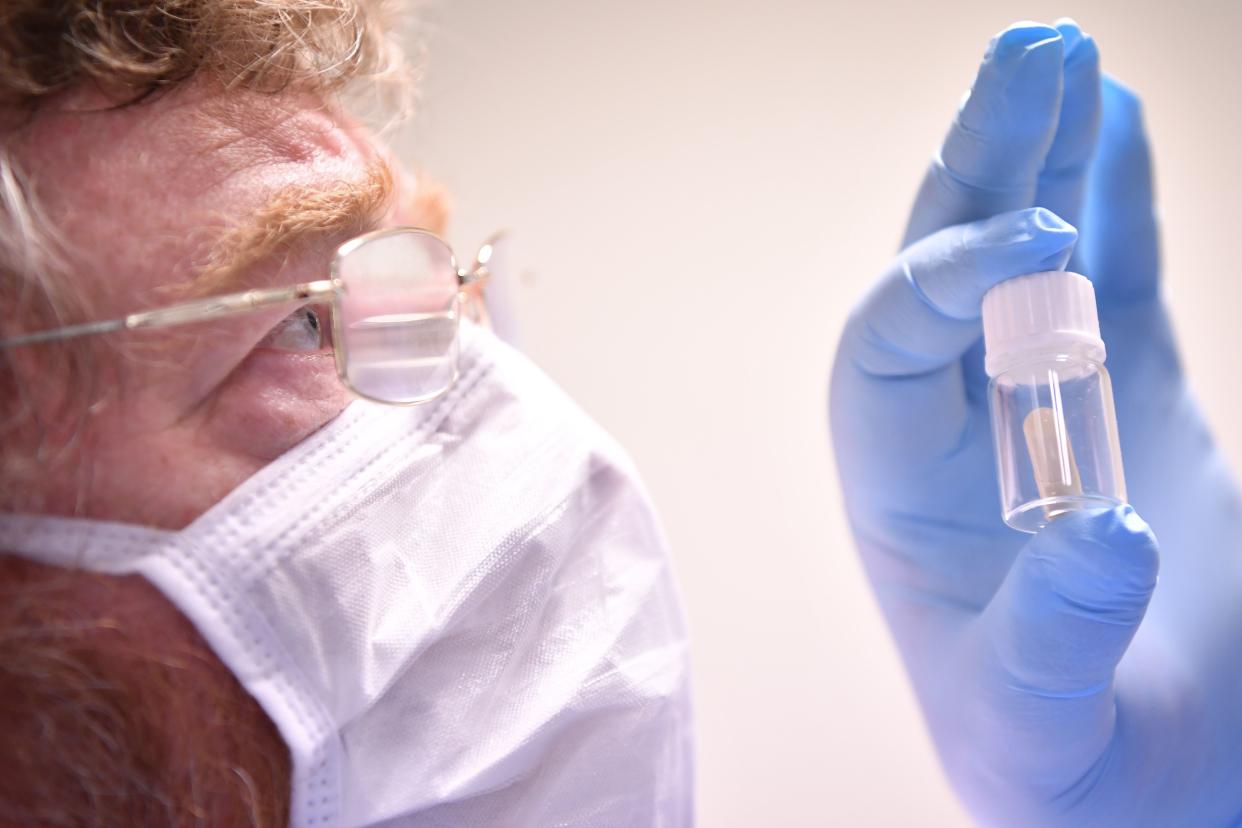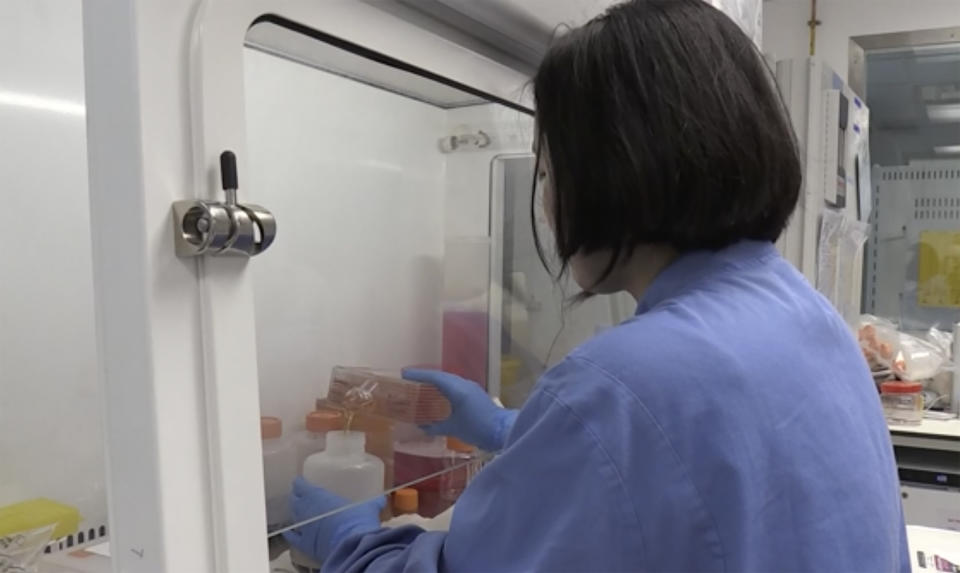'This could implode': The dangers of hyping up a coronavirus vaccine

The world is desperate for a coronavirus vaccine.
Projects to find one are well underway across the world. All the while, the public is fed regular updates about the progress of each scheme.
But are the scientists involved, in fact, setting us up to be disappointed?
How close are we so far?
Chinese scientists said they are 99% sure their potential vaccine will work.
Top US company, Moderna, said eight of its patients had developed an immune response to its experimental vaccine.
Meanwhile UK drug giant AstraZeneca has promised to deliver one billion doses of Oxford University's potential vaccine.
One problem: there is no sign of a decisive breakthrough.
As such, some sociologists have argued we need to start considering the motives which may linger behind these exciting-sounding updates.
So, what could these be, and why could sustained hype surrounding a COVID-19 vaccine be dangerous?
Yahoo News UK spoke to two professors who specialise in medical sociology, and took away these three warnings…
1. Be careful about positive updates
Robert Dingwall, a social sciences professor at Nottingham Trent University, says scientists will often “hype” their progress to sustain the flow of resources to their project.
This is nothing new. It’s a theory that has been circulated in sociological studies since the late 1990s. “What we are seeing with the [coronavirus] vaccines is just the latest iteration of this,” he says.
He explains: “In the modern climate, science is very strongly driven by market forces where you have this highly competitive environment of funding and rewards, and uncertainty about continued investment.
“If you are going to keep a big scientific research group afloat, you have to do this kind of marketing.”
Nik Brown, a sociology professor at the University of York who last year published a book about the biopolitics of immunity, points out it is scientists who are most aware of the limitations of their research.
“Then, when they address the wider public and wider world – politics, investment capital, the public, press releases – a lot of those uncertainties aren’t clearly stated, even if they are known.
“The groups working on vaccines need to be as transparent as they can possibly be about the challenges they face.”
2. Relentless hype risks public trust imploding
Prof Dingwall compares scientists’ vaccine updates to contractors promising to start work on your house in two weeks’ time.
“There’s always: ‘We just need a little bit more cash, a little bit more time, and we will deliver on these hopes we’ve encouraged you to build.’
“You can then end up manipulating people’s hopes and have them feeling deflated at the end of the process.

“We need to understand the risks of quite considerable disillusionment. There is a risk of this hype bubble imploding at the end, in a way that is not positive to the science that is involved.”
Prof Brown, meanwhile, says the search for a coronavirus vaccine is yet to have its “credibility crisis”.
He says: “When all those promises meet their challenges, that’s inevitably a credibility crisis.
“I just can’t imagine that not occurring at some stage – as what is being promised is entirely unprecedented and extremely ambitious.”
3. A vaccine may not be what we want it to be
What if, as Prof Dingwall warns, a COVID-19 vaccine is found – but it provides only partial protection for a limited period, compared to the lifelong immunity of some childhood vaccines?
He says: “We’ve had all this ‘it’s going to be just around the corner and it’s going to be amazing’ but it probably isn’t either of those things.
“A much better way of talking about this would be to stress the medium-term uncertainty and if we are extremely lucky, we might get a vaccine more quickly.”

What makes the coronavirus vaccine scenario unique, Prof Brown adds, is the concept of time against an ever-growing death toll: more than 375,000 worldwide as of 1pm on Tuesday.
“What is going on is extremely novel and untried and untested. It would be unusual, for the kinds of innovations being pursued, not to hit some kinds of difficulties, whether in terms of efficacy, risk or regulation.
“There are an awful lot of challenges that haven’t really had the time to surface yet. And the asset we don’t have at the moment is time. There’s a long way to go, probably.”
He warns: “We are desperate, we want a vaccine and we want to get the world working safely again. But I can’t imagine that’s going to happen in a blink of an eye.”
Coronavirus: what happened today
Click here to sign up to the latest news, advice and information with our daily Catch-up newsletter
Read more about COVID-19
How to get a coronavirus test if you have symptoms
How easing of lockdown rules affects you
In pictures: How UK school classrooms could look in new normal
How public transport could look after lockdown
How our public spaces will change in the future
Help and advice
Read the full list of official FAQs here
10 tips from the NHS to help deal with anxiety
What to do if you think you have symptoms
How to get help if you've been furloughed

 Yahoo News
Yahoo News 

